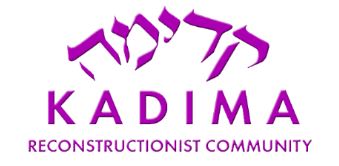Letting one’s hair grow is an act of mourning in Jewish tradition. Some Jews will refrain from cutting their hair until 30 days after the death of someone they are mourning. On October 7, I decided I would not cut my hair for 30 days, as my friend Hayim along with 1200 other Israelis, mostly Jews, were murdered that day. As the week progressed and shabbat came, the bombing of Gaza began, and I said again, I will not cut my hair for 30 days. When the bombing continued into the coming week and I went to DC to call for a ceasefire, I decided that once a ceasefire came, I would then wait 30 days before cutting my hair, to honor those killed by honoring my tradition.
Then, when I taught an Introduction to Judaism class session for the Washington Coalition of Rabbis in January, we learned some of the different holidays and Jewish seasons of acknowledgement in the Spring and Summer, each containing a season of mourning. We learned the season between the beginning of Passover and Lag B’omer, a season that some Jews refrain from cutting hair to mark the death of 24,000 of Rabbi Akiva’s students. We looked together at the season between the 17th of Tammuz and Tisha B’Av – three weeks in the middle of summer when some Jews do not cut their hair to mark the period between the Babylonian siege of Jerusalem and the destruction of the Jerusalem Temple.
I was left wondering: in future years, when the atrocities in Gaza are long over, when the hostages are long returned, and perhaps when the occupation and injustices are all over, will Jews mark a season of mourning from October 7 (or Simchat Torah on the Jewish calendar, the 21 of Tishrei) until whenever this ends? Will anyone?
While my hair continues to grow, thousands upon thousands die. We continue to live through an atrocity of history. Let our future selves not wonder or worry if and how we spoke out and worked everyday to end it now. Let our future selves also not wonder or worry how we sustain and care for ourselves as we do.
And in the midst of hair, sustaining ourselves, and doing something everyday that works to bring an end to this violence, may we do so with deep love and appreciation for our particular abilities and methods – not only what we do but the way we do it. Because the “stakes [are] stark” as R’ Julia Watts Belser writes in her new book, so let us “[find] and [feel] and [claim] the holiness of [our] own bones…” to have “the brilliant audacity to call it good and know it whole.”
May it end soon and in our days. And as we work, as we grieve, as we frustrate and exhaust (hopefully more the forces of militarism than ourselves), may we also come together for solace, for connection, and for small tastes of the shalom we all long for.
Chodesh tov, shabbat shalom, and happy Lunar New Year as we move into a fifth month of catastrophe,
R’ David

 RSS Feed
RSS Feed